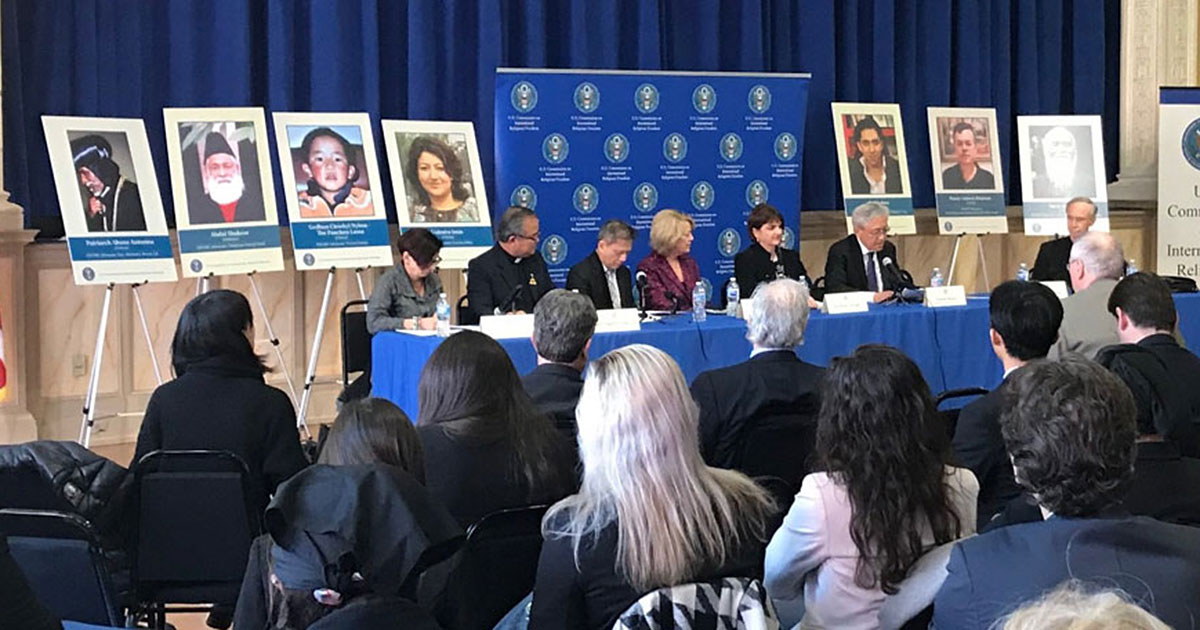
USCIRF report recommends re-designating China as a Country of Particular Concern and advocates for passage of the Reciprocal Access to Tibet Act.
In a scathing annual report, the United States Commission on International Religious Freedom (USCIRF) found that Tibet under Chinese rule has increasingly come to resemble a police state. The Commission recommends that the United States government re-designate China as a Country of Particular Concern, use the Global Magnitsky Act against Chinese officials and agencies responsible for human rights abuses, appoint a Special Coordinator for Tibetan Issues, and pass the Reciprocal Access to Tibet Act.
Characterizing China’s strategies towards Tibet as ones of “antagonism and hostility,” the Commission describes pervasive controls on the practice of Tibetan Buddhism and heightened interference at the Larung Gar Buddhist Institute, culminating in the eviction of almost 5,000 monks and nuns. The report covers China’s increasingly concerted efforts to isolate the Dalai Lama and punish Tibetans for expressing loyalty to him:
The Chinese government accuses the Dalai Lama of blasphemy and “splittism” and cracks down on anyone suspected of so-called separatist activities. Monks and nuns who refuse to denounce the Dalai Lama or pledge loyalty to Beijing have been expelled from their monasteries, imprisoned, and tortured. Chinese officials continued to protest foreign officials meeting the Dalai Lama, including a planned August 2017 visit to Botswana, which the Dalai Lama later canceled due to exhaustion.
During 2017, authorities released several Tibetans from prison before they served their full sentences; however, many others continue to languish in prison. For example, reports in December 2017 indicated that Tibetan monk Choekyi’s health was declining in prison; he is serving a four-year sentence after being arrested for celebrating the Dalai Lama’s birthday.
Commissioner Tenzin Dorjee, the first Tibetan-American to serve on USCIRF, provided an additional statement to the section on China and included his thoughts on how to resolve the Tibet issue:
His Holiness seeks a genuine autonomy for all of Tibet, within China’s federation, to preserve her distinctive identity, language, religions, culture and traditions. If China looks at the Tibet issue from all angles, she can become more open and receptive to resolve it for the good of all. However, if the Tibet issue remains unresolved, His Holiness said it clearly, as early as in the 80s, that he will reincarnate in a free country, not under China’s control of Tibet, to continue his unfinished work. In this regard, China cannot control the next Dalai Lama and the Tibet issue will continue over generations. In accordance with the Tibetan Policy Act of 2002, the U.S. government should engage China internationally and multilaterally to resolve the Tibet issue for regional and global peace and stability.
Additional recommendations from the Commission included integrating religious freedom into the Sino-American bilateral relationship, and sending regular Congressional delegations to visit areas deeply impacted by China’s severe religious freedom abuses, specifically naming Tibet and East Turkestan. To read the entire report, please click here.

